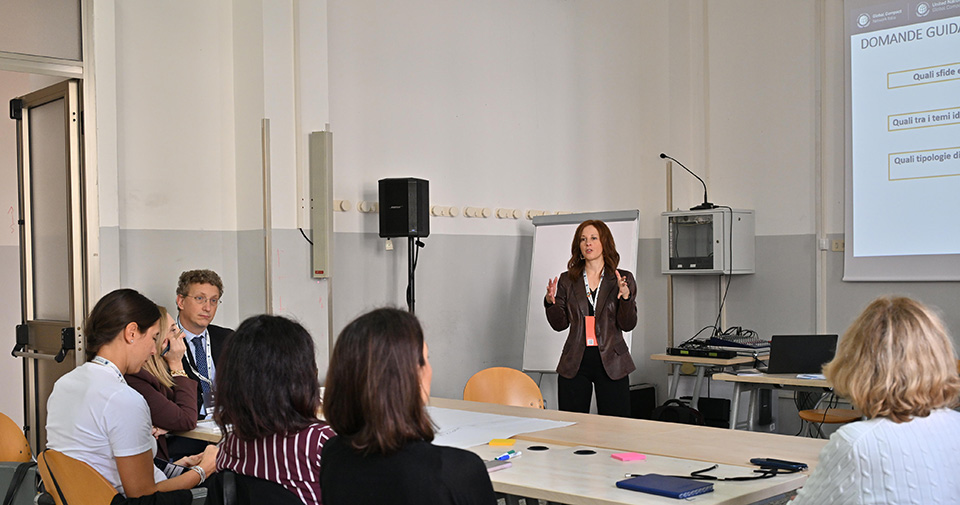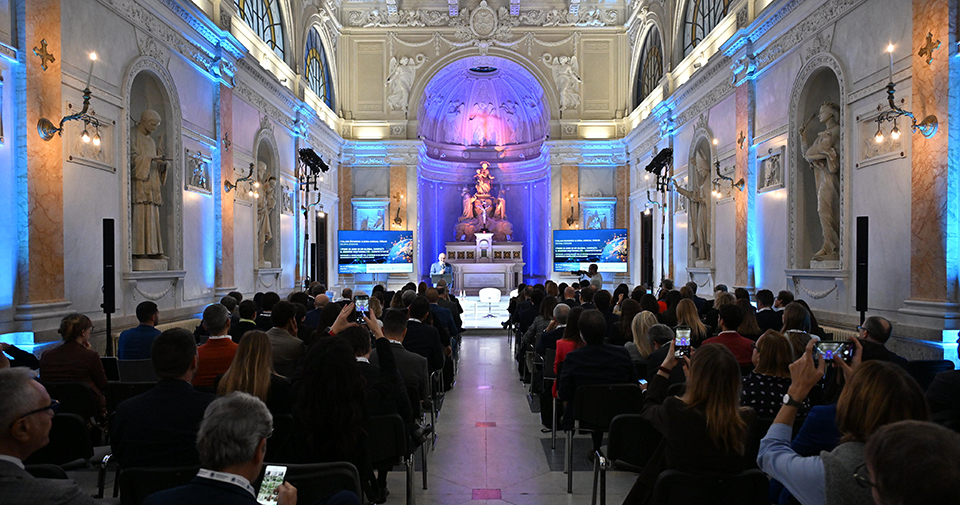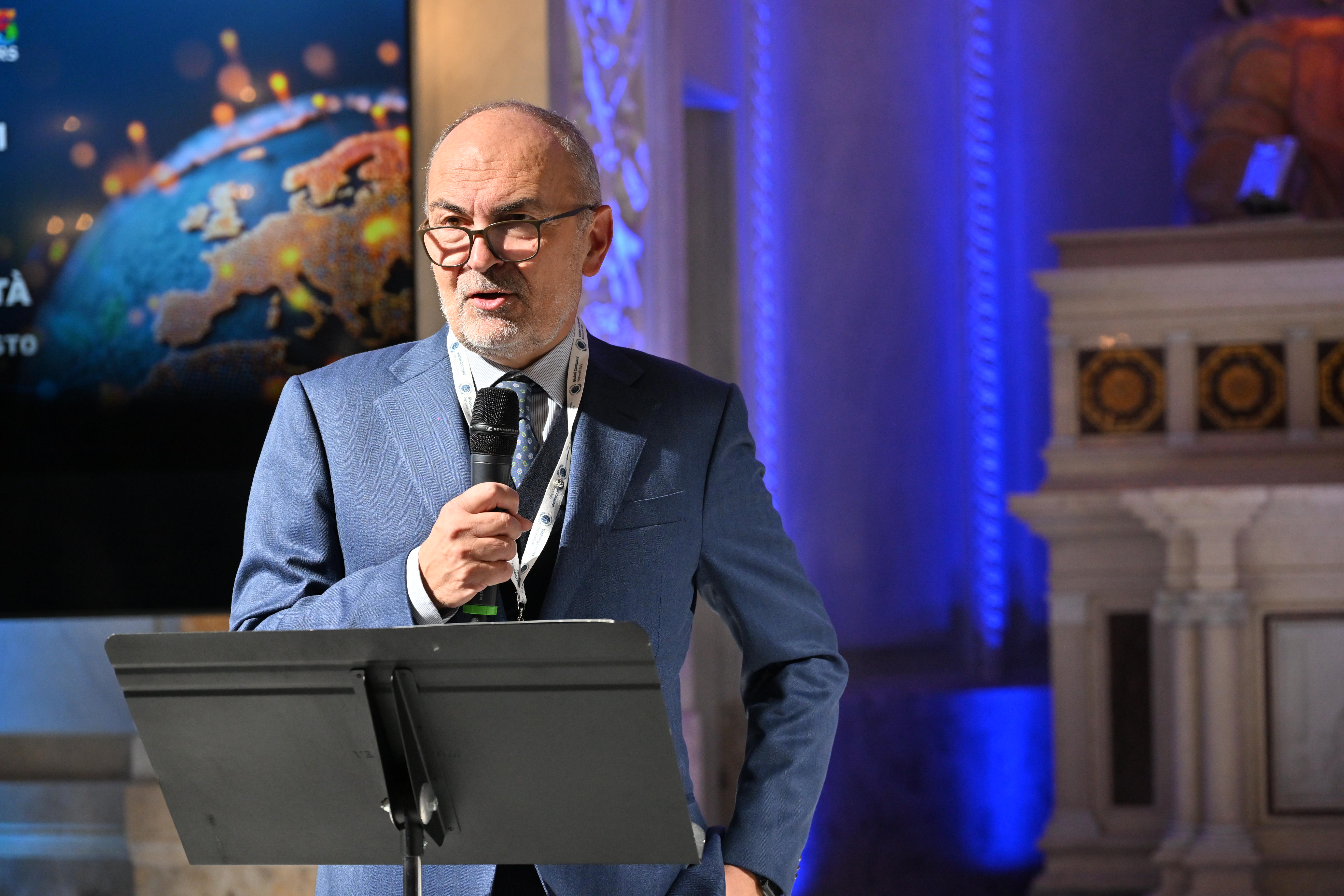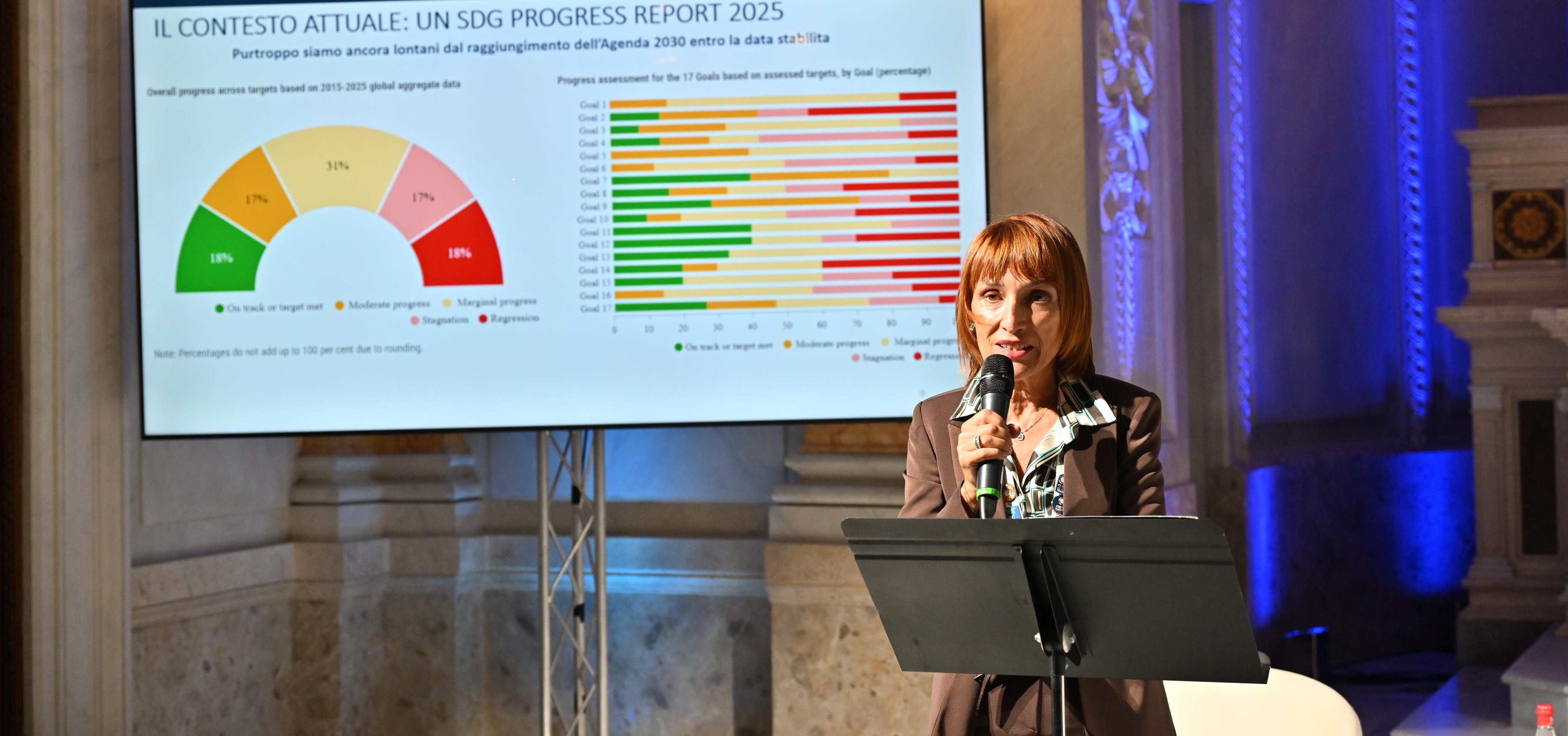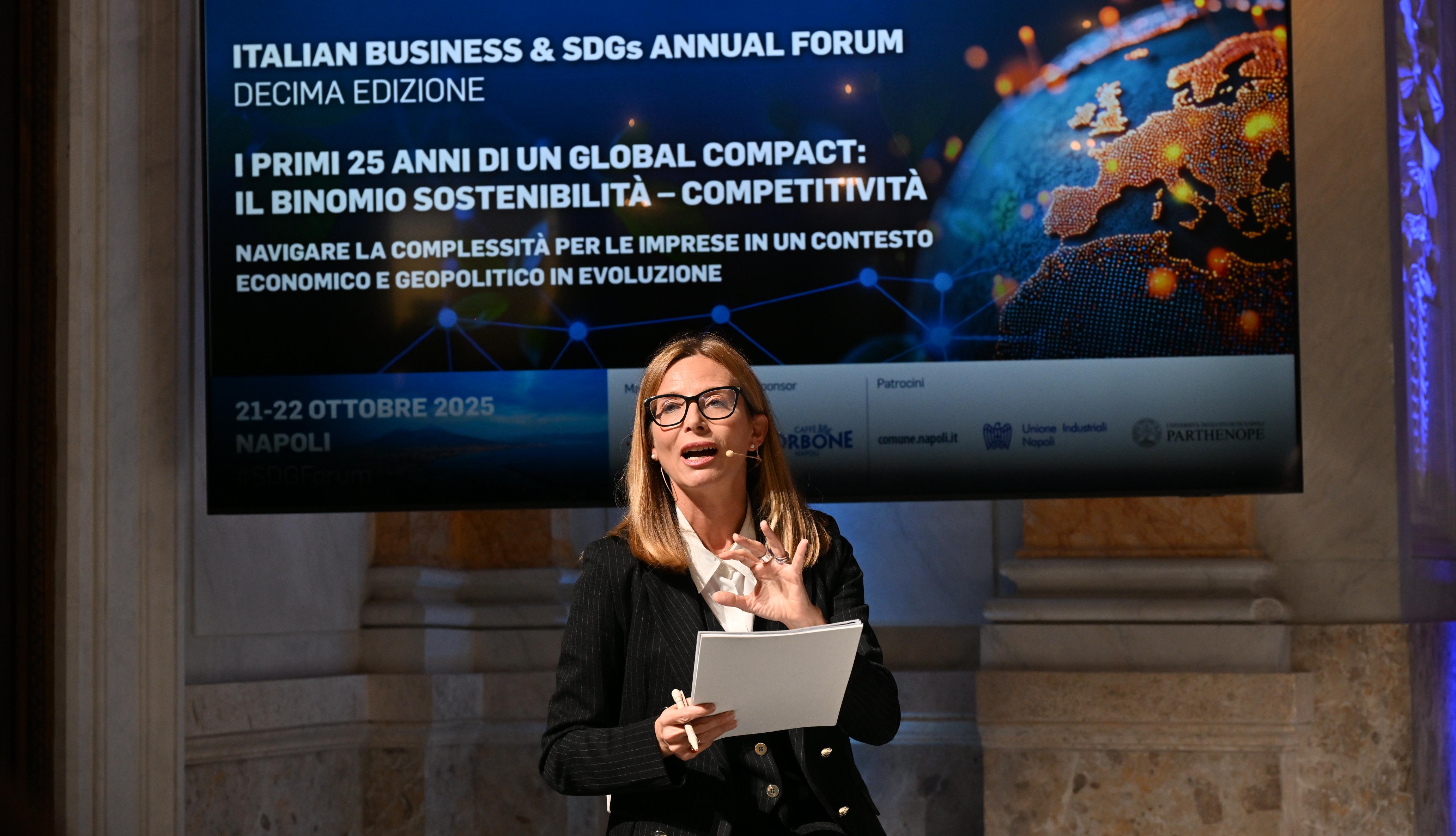The tenth edition of the Italian Business & SDGs Annual Forum, organized by UN Global Compact Network Italy, last 21 and 22 October, reiterated a now central message in the business world: sustainability is no longer an ethical or reputational choice, but an essential condition for economic growth and competitiveness.
This year the SDGs Forum took place in Naples, a city chosen to celebrate the 25th anniversary of the United Nations Global Compact and to enhance the role of Southern Italy as a laboratory of innovation and sustainability. Naples has thus established itself as a symbol of a sustainable transition from below, capable of connecting institutions, businesses and local communities in a common path of responsible development.
During the event, representatives of the public sector, the business world and stakeholders discussed the main objectives of the United Nations 2030 Agenda, by sharing experiences and perspectives on how to integrate sustainability into business models. It has clearly emerged from the debate that sustainability is no longer a constraint, but a strategic lever for innovation, resilience and competitive development at a national and international level.
During the SDGs Annual Forum, UN Global Compact Network Italy presented the new UNGC strategy for 2030, designed to strengthen the organization's leading role in defining the corporate agenda for sustainable development. The action plan focuses on three directions: offering personalized tools to companies to accompany them on the sustainability integration path; promote collective action on priority areas such as climate change, nature protection, decent work, gender equality and sustainable finance; enhance the business case for sustainability, recognizing the contribution of businesses as a driver of transformation and progress.
This vision aligns with the six major transitions identified by the United Nations for achieving the SDGs (Sustainable Development Goals): the transformation of food systems, the diffusion of renewable energy, the reduction of the digital divide, support for education, the creation of decent work and environmental protection.
The debates revealed how companies are evolving rapidly to respond to an uncertain geopolitical context and increasingly stringent European regulations, such as the Omnibus Package and the EUDR Regulation. These rules are today interpreted not as obstacles, but as opportunities to improve transparency, stimulate innovation and build sustainable competitive advantages.
Particular attention was dedicated to Italian SMEs, the backbone of the national production fabric. Despite having more limited resources, many small and medium-sized businesses are investing in training, digitalization and collaboration to integrate sustainability into their operating models, demonstrating a growing awareness of the strategic value of this change.
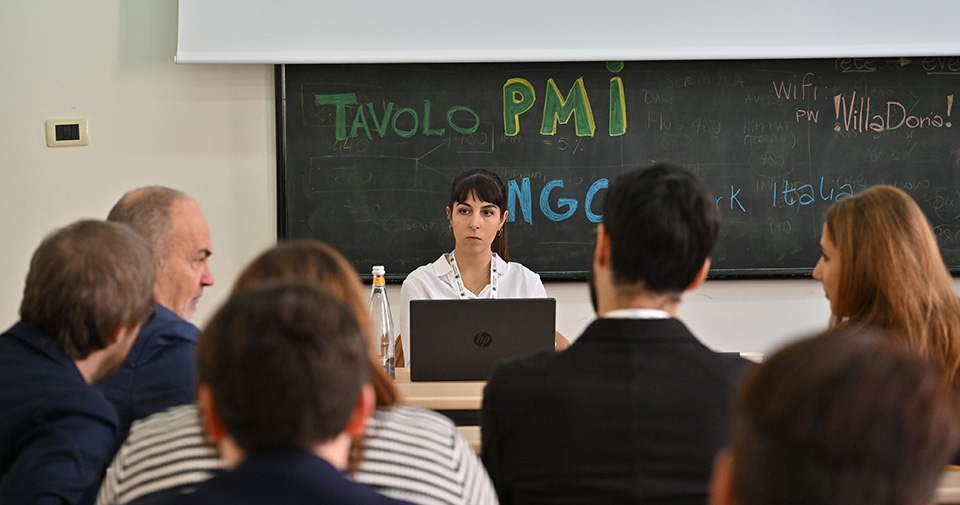
The centrality of sustainable finance as a key lever for competitiveness also emerged forcefully in the debate. Access to green capital, combined with the diffusion of ESG (Environmental, Social, Governance) culture, today represents a decisive element for balanced and responsible growth. Promoting dialogue between large companies, SMEs, institutions and financial actors is considered essential to promote a just transition, capable of harmoniously integrating economic, environmental and social dimensions.
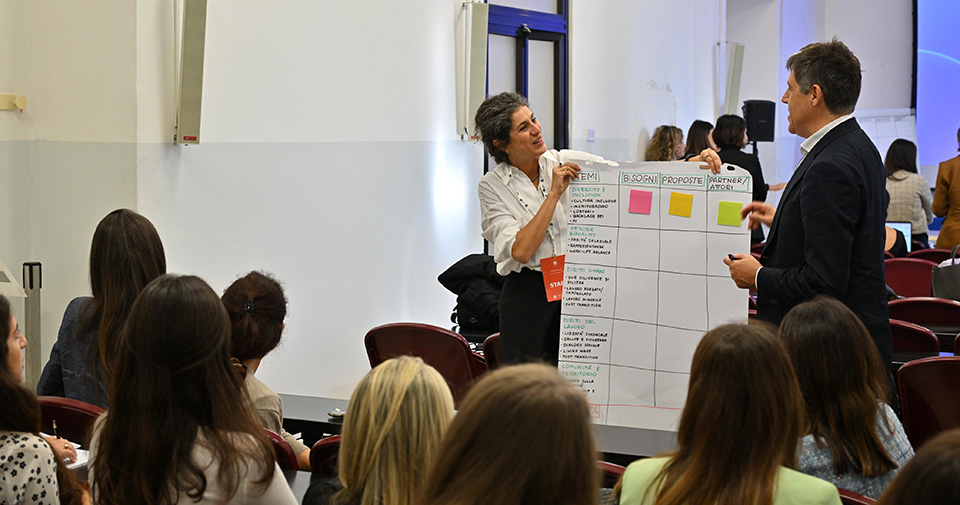
The thematic discussions, which characterized the second day of the Forum, offered a space for discussion on the most recent trends in corporate sustainability, providing ideas for the definition of the 2026 activity programme of UN Global Compact Network Italy. The discussions confirmed the need for a structural approach, which integrates sustainability into every level of governance and industrial plans, as a prerequisite for building models of inclusive, resilient and competitive growth.
